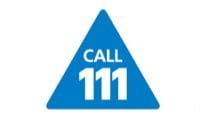The British Medical Association has written to health secretary Andrew Lansley urging him to adopt a “flexible deadline” for the roll-out of NHS 111 amid concerns about its procurement and progress.
The letter – from General Practitioners Committee chairman Dr Laurence Buckman – outlines a number of “serious misgivings” about the project to introduce a non-urgent NHS phone number across England.
It also says the procurement process in non-pilot areas is being rushed, leaving clinical commissioning groups with little input or choice of provider.
And it says the strict deadline to have the new service in place by April 2013 means lessons from the pilots will not be learned and “mistakes will just be repeated.”
Dr Buckman says relaxing the deadline would mitigate some of these concerns. “We seek your assurance that the procurement of NHS 111 services will be slowed down, to allow for proper evaluation of the pilots,” he says in his letter.
“[Also] that you will adopt a flexible deadline for full implementation of the service to ensure that fledgling clinical commissioning groups can play a full role in procurement decisions.
“We are concerned that a failure to do this could lead to serious unintended consequences that could be avoided with a more flexible approach.”
The NHS 111 service has been controversial from the outset. It was announced abruptly, when Lansley told reporters that it would replace NHS Direct during a visit to County Durham and Darlington, where it was developed, in August 2010.
The Department of Health went on to look for pilot sites, three of which are up and running and due to be evaluated by Sheffield University. However, there is a target in place for NHS 111 to be available across England by 2013, which is driving local procurements.
A number of doctors’ organisations have raised concerns that the new service will disrupt existing patterns of out-of-hours care, increase attendance at A&E and doctors’ surgeries, and increase commissioners’ costs.
In a paper published to support the letter to Lansley, the BMA gives two examples of concerns raised by local GPs about NHS 111 services.
It says Shropshire GPs are worried that patients will receive lower quality care than they do at present, as the clinicians who triage all calls to the Shropdoc out-of-hours provider are to be replaced by non-clinicians when NHS 111 takes over.
“If there was a more flexible deadline in place, then local commissioners would have time to work out a solution with NHS 111 so that this option could be kept for their area,” Dr Buckman argued.
In the second example, the paper says that clinical commissioners have not been involved in an NHS 111 procurement for Nottingham, that could put its out-of-hours service out of business, disrupt services, and “seriously jeopardise the safety of patients.”
The paper also says that, more broadly, the experience of NHS 24 in Scotland suggests that England can expect NHS 111 to lead to increased demand for healthcare services and higher referral rates.
It says GPs need to be confident that the new service will direct patients to appropriate services and offer good advice on self-care for minor ailments.
Also, that risk adverse call handlers will not place unnecessary and costly burdens on ambulance services, A&E departments and GPs.

